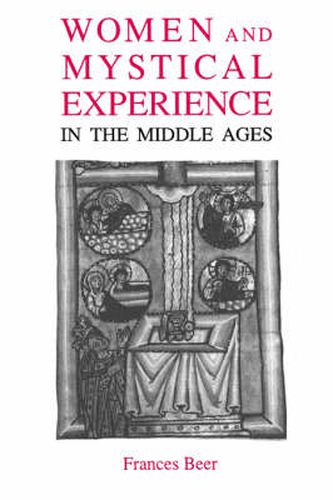Readings Newsletter
Become a Readings Member to make your shopping experience even easier.
Sign in or sign up for free!
You’re not far away from qualifying for FREE standard shipping within Australia
You’ve qualified for FREE standard shipping within Australia
The cart is loading…






‘A wholly feminine voice within Catholicism-they express the inexpressible better than any amount of rational thinking about God.’ THE TIMES. The three women who are the subject of this fascinating study lefta rich legacy of medieval spirituality. Frances Beer explores theirwritings and draws on available historical evidence to bring the experience of all three women closer to a 20th-century audience. She sees Hildegard’s perception of her Creator as informed by the heroic ideal, while Mechthild’s erotic experience seems to show the influence of the minnesingers. Julian’s experience of tender intimacy with her Lord demonstrates an egalitarian confidence in the ability of the individual soul to progress towards onenesswith the divine. Their individual natures are also further revealed through the author’s examination of their resolution of a number of theological problems. In contrast, the works of two medieval men writing for women are also explored.FRANCESBEER is Associate Professor of English at York University, Toronto.
$9.00 standard shipping within Australia
FREE standard shipping within Australia for orders over $100.00
Express & International shipping calculated at checkout
‘A wholly feminine voice within Catholicism-they express the inexpressible better than any amount of rational thinking about God.’ THE TIMES. The three women who are the subject of this fascinating study lefta rich legacy of medieval spirituality. Frances Beer explores theirwritings and draws on available historical evidence to bring the experience of all three women closer to a 20th-century audience. She sees Hildegard’s perception of her Creator as informed by the heroic ideal, while Mechthild’s erotic experience seems to show the influence of the minnesingers. Julian’s experience of tender intimacy with her Lord demonstrates an egalitarian confidence in the ability of the individual soul to progress towards onenesswith the divine. Their individual natures are also further revealed through the author’s examination of their resolution of a number of theological problems. In contrast, the works of two medieval men writing for women are also explored.FRANCESBEER is Associate Professor of English at York University, Toronto.